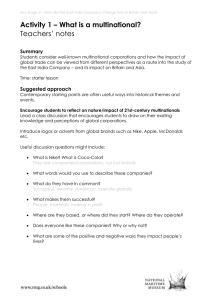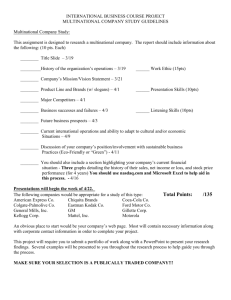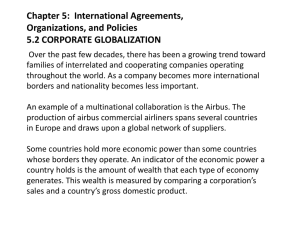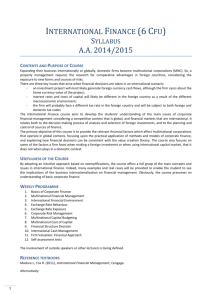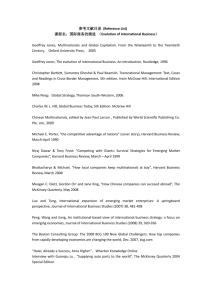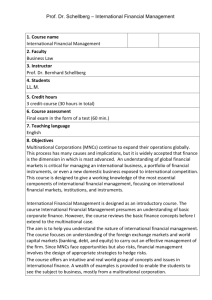Fully explain the impacts of multinational companies on businesses
advertisement
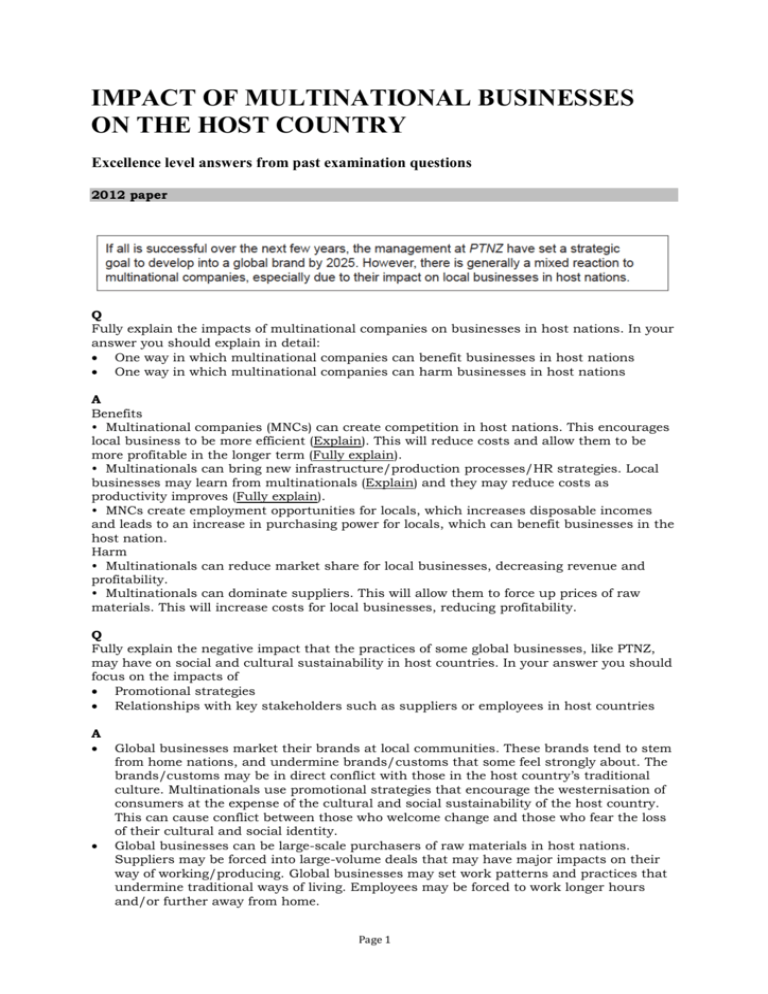
IMPACT OF MULTINATIONAL BUSINESSES ON THE HOST COUNTRY Excellence level answers from past examination questions 2012 paper Q Fully explain the impacts of multinational companies on businesses in host nations. In your answer you should explain in detail: One way in which multinational companies can benefit businesses in host nations One way in which multinational companies can harm businesses in host nations A Benefits • Multinational companies (MNCs) can create competition in host nations. This encourages local business to be more efficient (Explain). This will reduce costs and allow them to be more profitable in the longer term (Fully explain). • Multinationals can bring new infrastructure/production processes/HR strategies. Local businesses may learn from multinationals (Explain) and they may reduce costs as productivity improves (Fully explain). • MNCs create employment opportunities for locals, which increases disposable incomes and leads to an increase in purchasing power for locals, which can benefit businesses in the host nation. Harm • Multinationals can reduce market share for local businesses, decreasing revenue and profitability. • Multinationals can dominate suppliers. This will allow them to force up prices of raw materials. This will increase costs for local businesses, reducing profitability. Q Fully explain the negative impact that the practices of some global businesses, like PTNZ, may have on social and cultural sustainability in host countries. In your answer you should focus on the impacts of Promotional strategies Relationships with key stakeholders such as suppliers or employees in host countries A Global businesses market their brands at local communities. These brands tend to stem from home nations, and undermine brands/customs that some feel strongly about. The brands/customs may be in direct conflict with those in the host country’s traditional culture. Multinationals use promotional strategies that encourage the westernisation of consumers at the expense of the cultural and social sustainability of the host country. This can cause conflict between those who welcome change and those who fear the loss of their cultural and social identity. Global businesses can be large-scale purchasers of raw materials in host nations. Suppliers may be forced into large-volume deals that may have major impacts on their way of working/producing. Global businesses may set work patterns and practices that undermine traditional ways of living. Employees may be forced to work longer hours and/or further away from home. Page 1
